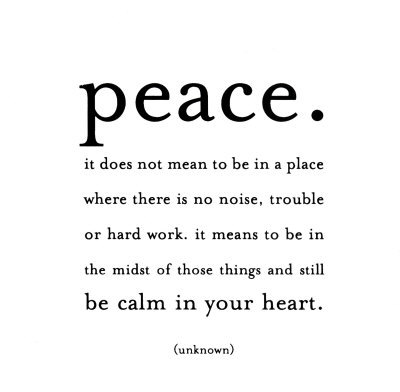 The definition of anxiety is the anticipation of danger that might happen in the future. Since that’s the case, one of the most effective ways to combat anxiety is to stay in the present.
The definition of anxiety is the anticipation of danger that might happen in the future. Since that’s the case, one of the most effective ways to combat anxiety is to stay in the present.
“So do not worry about tomorrow, for tomorrow will bring worries of its own. Today’s trouble is enough for today.” (Matthew 6:34, RSV)
Staying In The Present
A cue from the verse above, focusing on today’s trouble today is how we stay in the “here and now.” It’s normal for thoughts or worries to enter our minds about other things when we’re trying to focus on something. The best way to stay in the here and now is to talk back to those thoughts. A statement like, “I’m not dealing with the problem yet, I need to finish this task,” is a good way to push the thought aside. Notice that you are not dismissing the thought, problem or worry, you are merely postponing it until it’s time to deal with it. The goal is to address one thing at a time.
Staying focused on the present moment can help improve productivity, reduce stress, and enhance overall well-being. Here are some techniques and practices that can help you stay focused on the here and now:
- Set specific goals: Clearly define your goals and break them down into smaller, manageable tasks. By focusing on one task at a time, you can stay engaged in the present moment and avoid feeling overwhelmed.
- Remove distractions: Minimize external distractions by creating a conducive environment for focus. Silence or mute notifications on your phone, close unnecessary tabs on your computer, and find a quiet space where you can work without interruptions.
- Prioritize and organize: Develop a system to prioritize tasks based on their importance and deadlines. Having a clear plan of action can help you stay focused on the task at hand rather than worrying about future responsibilities.
- Time blocking: Allocate specific time blocks for different activities throughout your day. By scheduling dedicated periods for focused work, breaks, and leisure, you can maintain a sense of structure and prevent your mind from wandering.
- Practice single-tasking: Instead of multitasking, which can lead to decreased focus and productivity, focus on one task at a time. Give your full attention to the present activity and complete it before moving on to the next one.
- Engage your senses: Bring awareness to your senses to anchor yourself in the present moment. Notice the sights, sounds, smells, tastes, and physical sensations around you. Engaging with your senses can help ground you and prevent your mind from drifting.
- Regular breaks: Take short breaks during intense periods of focus. Use these breaks to rest, stretch, or engage in activities that help you recharge. Stepping away from work periodically can enhance your ability to stay focused when you return.
- Cultivate self-discipline: Practice self-discipline by consciously redirecting your attention to the present moment whenever you catch your mind wandering. Over time, this habit can strengthen your ability to stay focused.
Remember, staying focused on the present moment is a skill that requires practice. Be patient with yourself and make a conscious effort to incorporate these techniques into your daily routine.
If you’re looking to overcome anxiety and/or depression, therapy can help! Book a free consultation with one of our licensed professional therapists here.


